Ditapis dengan
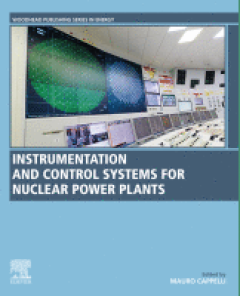
Instrumentation and Control Systems for Nuclear Power Plants
Instrumentation and Control Systems for Nuclear Power Plants provides the latest innovative research on the design of effective modern systems for both existing and newly commissioned plants, along with information on system implementation. Dr. Cappelli and his team of expert contributors cover fundamentals, explore the most advanced research in control systems technology, and tackle topics suc…
- Edisi
- -
- ISBN/ISSN
- 978-0-08-102836-0
- Deskripsi Fisik
- xxii,1090p.:illus.;26cm.
- Judul Seri
- -
- No. Panggil
- 621.483 CAP I
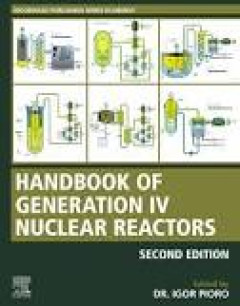
Handbook Of Generation IV Nuclear Reactors: Second Edition
Handbook of Generation IV Nuclear Reactors, Second Edition is a fully revised and updated comprehensive resource on the latest research and advances in generation IV nuclear reactor concepts. Editor Igor Pioro and his team of expert contributors have updated every chapter to reflect advances in the field since the first edition published in 2016. The book teaches the reader about available tech…
- Edisi
- -
- ISBN/ISSN
- 978-0-12-820588-4
- Deskripsi Fisik
- xix,1079p.:illus.;27.5cm.
- Judul Seri
- -
- No. Panggil
- 621.483 PIO H
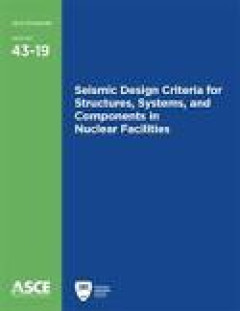
Seismic Design Criteria for Structures, Systems, and Components in Nuclear Fa…
Prepared by the Nuclear Standards Committee and the Task Committee on Dynamic Analysis of Nuclear Structures of the Codes and Standards Activities Division of the Structural Engineering Institute of ASCE. Seismic Design Criteria for Structures, Systems, and Components in Nuclear Facilities provides stringent design criteria for multiple aspects associated with nuclear facilities. Because of …
- Edisi
- -
- ISBN/ISSN
- 978-0-7844-1540-5
- Deskripsi Fisik
- xvii,88p.:illus.;28cm.
- Judul Seri
- -
- No. Panggil
- 621.483 AME S
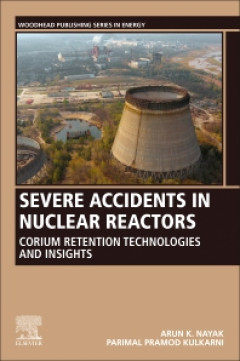
Severe Accidents in Nuclear Reactors Corium Retention Technologies and Insights
Severe Accidents in Nuclear Reactors: Corium Retention Technologies and Insights presents an authoritative and practical analysis of the latest severe accident management strategies based on previous events and experiments. Written for utilities and industries operating and researching nuclear cooled reactor power plants, this book presents the exponential growth in research since major nuclear…
- Edisi
- -
- ISBN/ISSN
- 9780128223048
- Deskripsi Fisik
- xv,394p.:illus.;25cm.
- Judul Seri
- -
- No. Panggil
- 621.483 NAY S
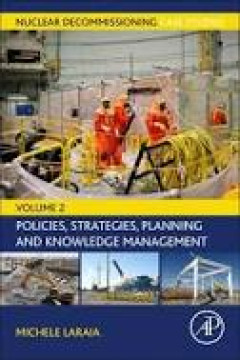
Nuclear Decommissioning Case Studies Policies, Strategies, Planning and Knowl…
Nuclear Decommissioning Case Studies: Policies, Strategies, Planning and Knowledge Management focuses on policy, strategy, planning and knowledge management in nuclear decommissioning, offering readers guidance on events that occur in early stages of the lifecycle. The book helps readers plan in advance to avoid and reduce schedule delays and cost overruns to ensure a smooth, safe and successfu…
- Edisi
- -
- ISBN/ISSN
- 978-0-323-85734-5
- Deskripsi Fisik
- xxiv, 347p.:illus.;24 cm
- Judul Seri
- -
- No. Panggil
- 621.483 LAR N
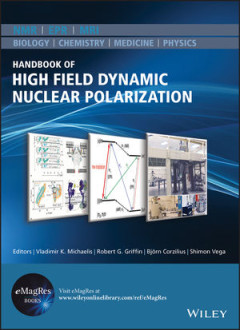
Handbook of High Field Dynamic Nuclear Polarization
This comprehensive handbook is a compendium of the current state-of-the art of high field Dynamic Nuclear Polarization—from long-proven, early developments, up to today’s hot topics. It covers all the relevant subjects that have made a direct or indirect contribution toward advancing this field, and focuses on topics such as: the theory behind the effects seen within DNP; instrumentation re…
- Edisi
- -
- ISBN/ISSN
- 978-1-119-44164-9
- Deskripsi Fisik
- xxi,449p.:illus.;24.5cm.
- Judul Seri
- -
- No. Panggil
- 621.483 MIC H

Nuclear Cultures Irradiated Subjects, Aesthetics and Planetary Precarity
Nuclear Cultures: Irradiated Subjects, Aesthetics and Planetary Precarity aims to develop the field of nuclear humanities and the powerful ability of literary and cultural representations of science and catastrophe to shape the meaning of historic events. Examining multiple discourses and textual materials, including fiction, poetry, biographies, comics, paintings, documentary and photography, …
- Edisi
- -
- ISBN/ISSN
- 978-1-032-18384-8
- Deskripsi Fisik
- xii,198p.:illus.;23.5cm.
- Judul Seri
- -
- No. Panggil
- 624.483 NAY N
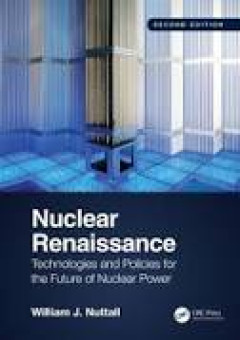
Nuclear Renaissance: Technologies and Policies for the Future of Nuclear Power
This second edition of Nuclear Renaissance: Technologies and Policies for the Future of Nuclear Power continues to examine the future of nuclear power in the contexts of economics, environmental sustainability, and security of electricity supplies. Fully updated with the latest technologies and concerns, this comprehensive guide illustrates the technical challenges and opportunities facing nucl…
- Edisi
- -
- ISBN/ISSN
- 978-0-367-48229-9
- Deskripsi Fisik
- xix,304p.:illus.;25.5cm.
- Judul Seri
- -
- No. Panggil
- 621.48 NUT N
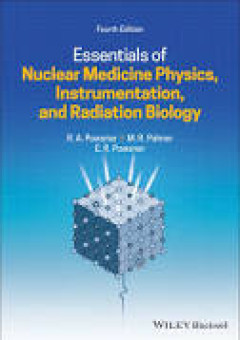
Essentials of Nuclear Medicine Physics, Instrumentation, and Radiation Biology
The new edition of the excellent introduction to basic concepts and instrumentation of nuclear medicine, featuring numerous high-quality illustrations and practical examples Essentials of Nuclear Medicine Physics, Instrumentation, and Radiation Biology provides a concise, highly illustrated introduction to fundamental nuclear medicine-related physics and engineering concepts. Gradually progres…
- Edisi
- -
- ISBN/ISSN
- 9781119621003
- Deskripsi Fisik
- ix,288p.:illus.;25cm.
- Judul Seri
- -
- No. Panggil
- 616.07575 POW E
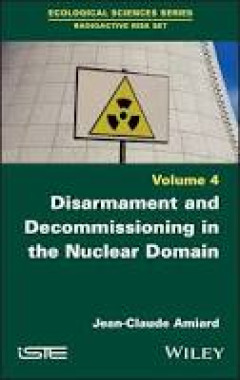
Disarmament and Decommissioning in the Nuclear Domain Volume 4
Following the acquisition of the atomic bomb by five states, the United Nations began drafting several treaties to limit nuclear proliferation. These efforts failed, as four more states also acquired nuclear weapons. In a similar vein, an attempt to limit atomic weapons - primarily within the two superpowers - was initiated. While the number of weapons has decreased, the new bombs now being ma…
- Edisi
- -
- ISBN/ISSN
- 978-1-78630-721-7
- Deskripsi Fisik
- x,334p.:illus.;24cm.
- Judul Seri
- -
- No. Panggil
- 621.483 CLA D
 Karya Umum
Karya Umum  Filsafat
Filsafat  Agama
Agama  Ilmu-ilmu Sosial
Ilmu-ilmu Sosial  Bahasa
Bahasa  Ilmu-ilmu Murni
Ilmu-ilmu Murni  Ilmu-ilmu Terapan
Ilmu-ilmu Terapan  Kesenian, Hiburan, dan Olahraga
Kesenian, Hiburan, dan Olahraga  Kesusastraan
Kesusastraan  Geografi dan Sejarah
Geografi dan Sejarah